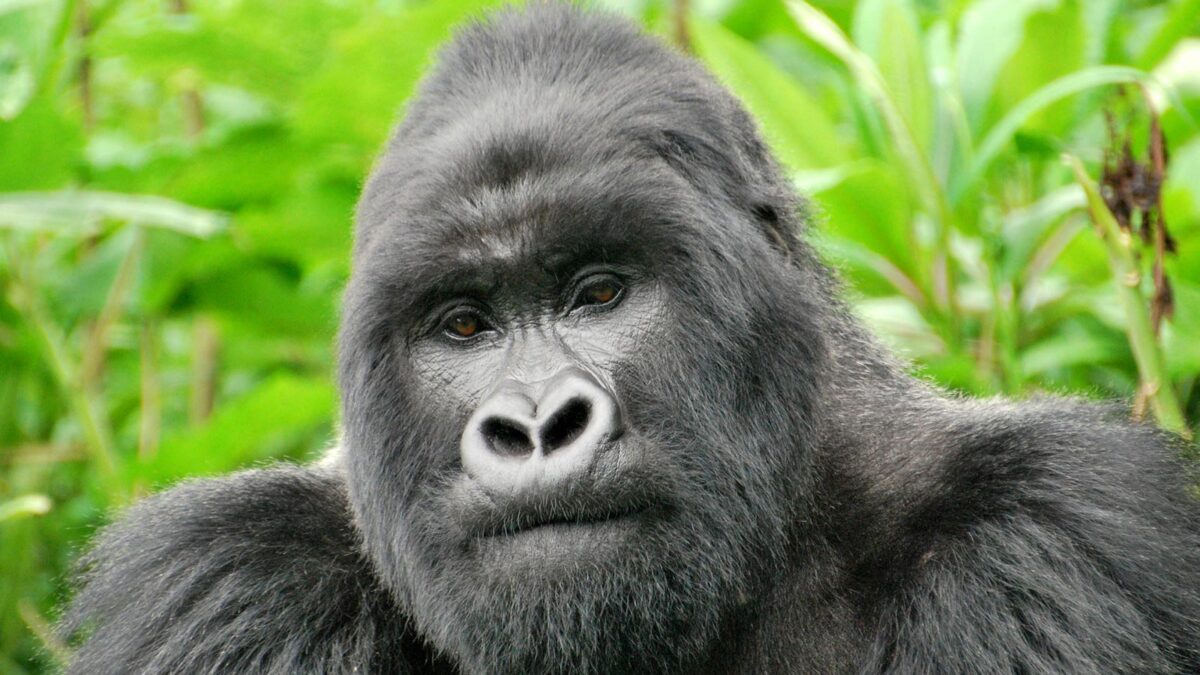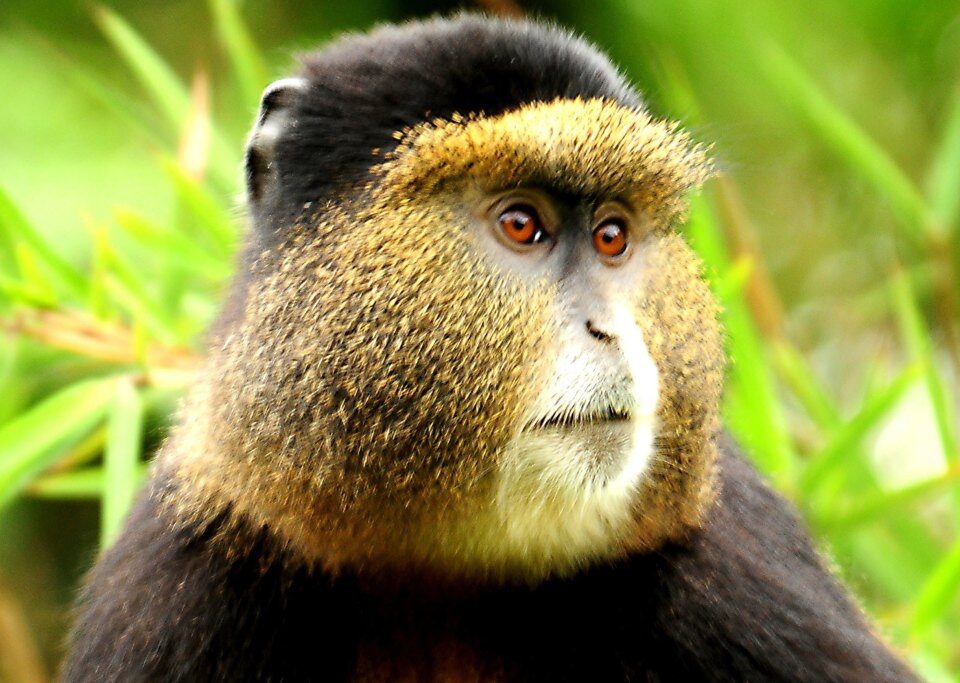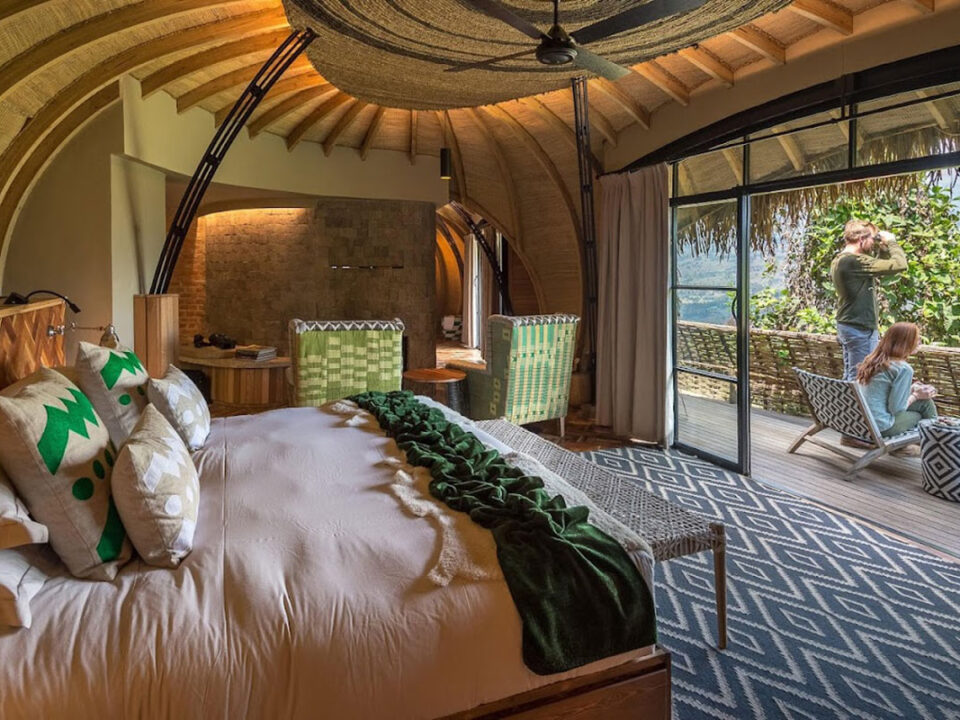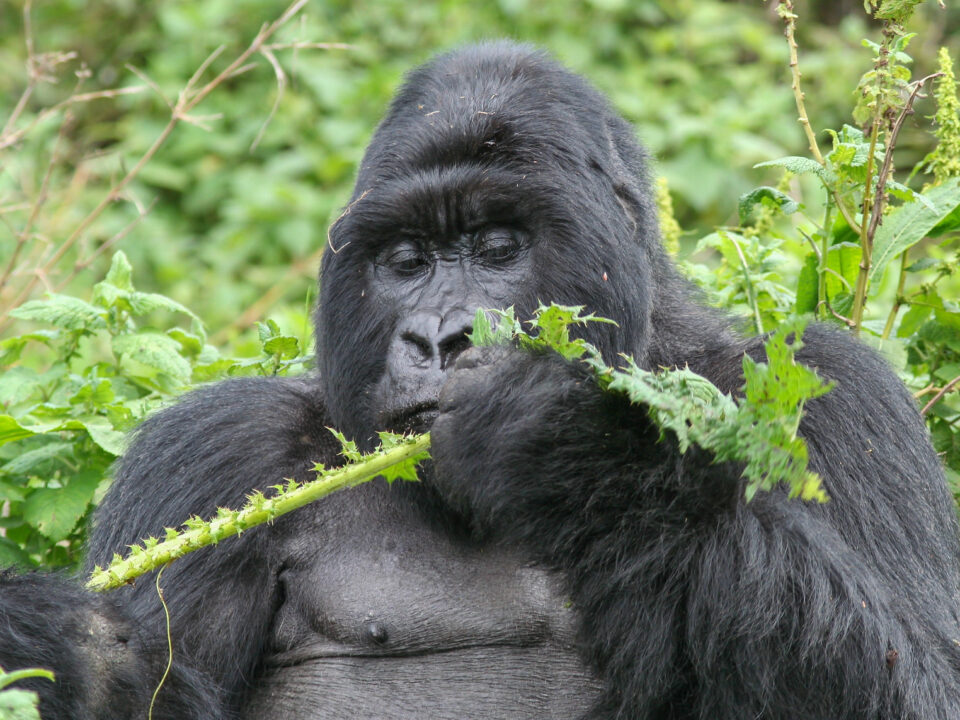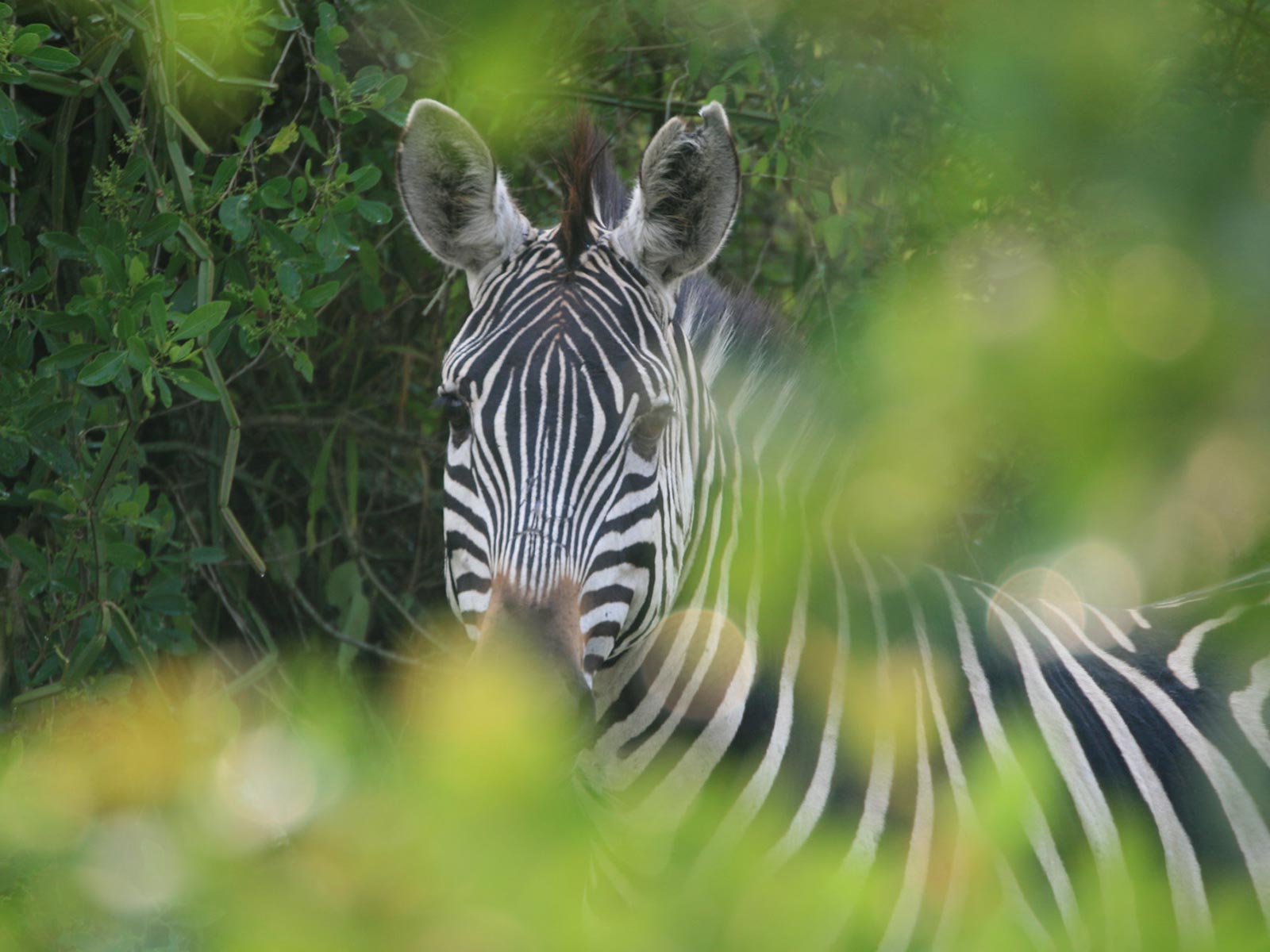
Tips on Planning a Uganda Safari for first timers
July 7, 2023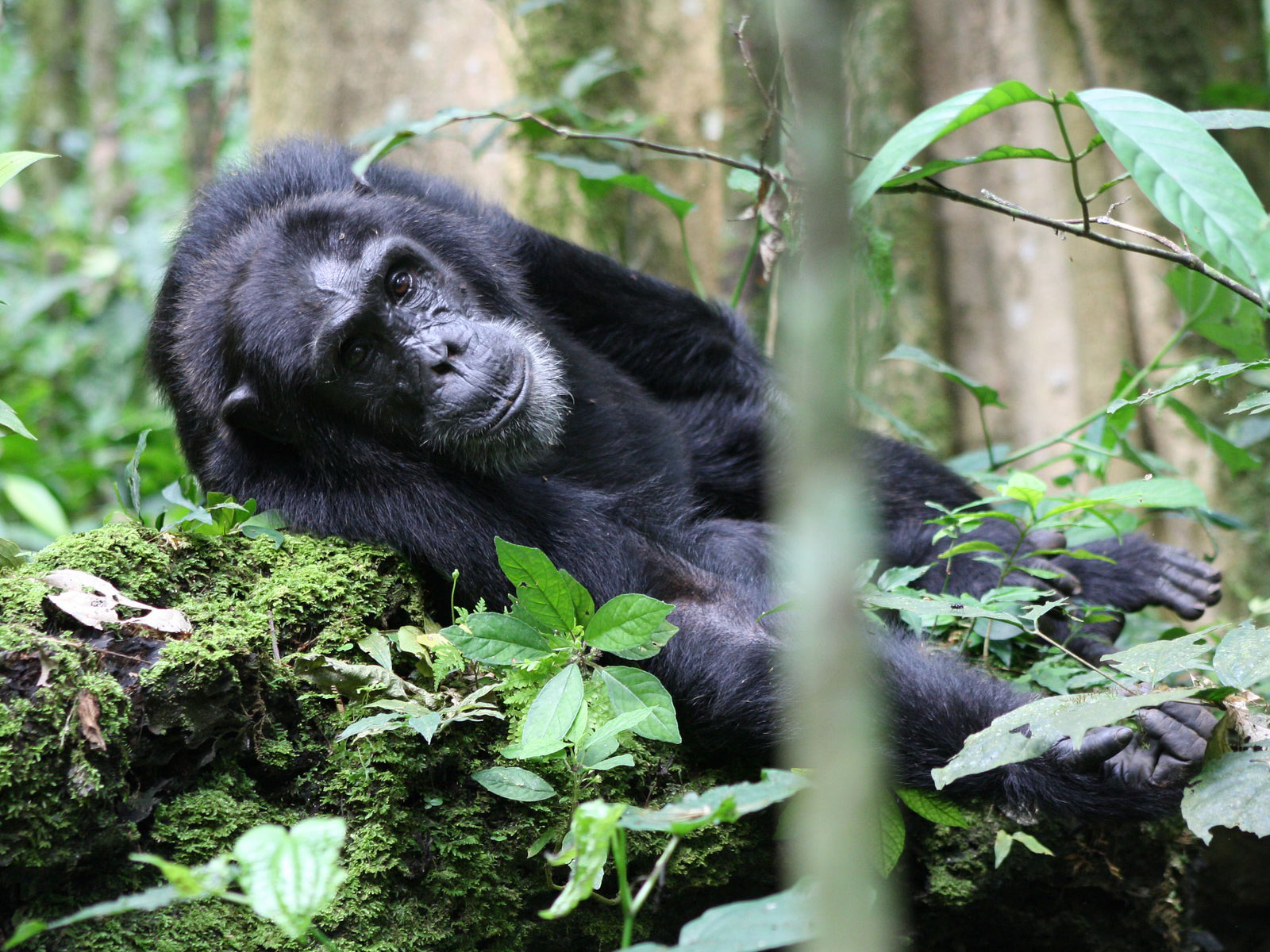
Uganda Gorilla and Chimpanzee Trekking Safaris from Canada
July 10, 2023Discovering the Majestic Mountain Gorillas in Rwanda: Where to Find and Support Them
If you’re seeking the ultimate experience of observing and supporting mountain gorillas in Rwanda, look no further. The wilderness and its inhabitants have much to teach us about human behavior, and encountering mountain gorillas is a transformative and awe-inspiring experience that deepens our connection to nature. Imagine sitting just 32 feet away from a magnificent 400-pound silverback gorilla, locking eyes with this gentle giant and realizing their simple desire to live. Such an encounter leaves an indelible mark on your soul.
Rwanda has emerged as an exceptional destination for encountering mountain gorillas, offering incredible opportunities to witness these extraordinary creatures up close. Despite a troubled past marred by civil wars that devastated the population, Rwanda has made remarkable progress in the African safari scene.
Mountain Gorillas in Rwanda: Unique and Precious
Mountain gorillas are a treasure for Rwanda’s tourism industry. As a subspecies of great apes, they differ from their counterparts in zoos around the world. While other gorillas reside in the tropical rainforests of Western Africa, mountain gorillas are larger, hairier, and inhabit the high mountains at elevations of 8,000 to 13,000 feet.
With a population of just over 1,000 individuals, mountain gorillas are found in two separate habitats within a small region of Central Africa. Thanks to the tireless efforts of governments, conservationists, communities, and the tourism industry, their survival is being safeguarded.
In Rwanda, the Virunga Mountains serve as a protected sanctuary for the gorilla population, spanning the borders of Rwanda, the Democratic Republic of Congo (DRC), and Uganda. The remaining approximately 500 mountain gorillas are conserved in Uganda’s Bwindi Impenetrable National Park.
Volcanoes National Park: Home to Mountain Gorillas
Located in the northeastern border region of Rwanda, adjacent to Uganda and the DRC, lies a chain of dormant volcanic mountains. The highest peak reaches an impressive height of 14,787 feet (4,507 meters). The Virunga Mountains’ slopes have become a beloved habitat for mountain gorillas, and Rwanda ensures their protection within Volcanoes National Park.
Volcanoes National Park is the sole protected reserve in Rwanda where visitors can witness the incredible mountain gorillas. Gorilla trekking in Rwanda is a safe and well-regulated activity, easily accessible to tourists.
Spanning over 160 square kilometers (62 square miles), Volcanoes National Park is a haven for not only gorillas but also other primates and rare species. The towering Virunga volcanoes, with their lush green rainforests, provide an ideal environment for gorillas to thrive.
Beyond the gorillas, the park offers a diverse range of montane ecosystems, including evergreen and bamboo forests, open grasslands, swamps, and heathlands. Bird enthusiasts will be delighted by the park’s rich avian life, with approximately 160 bird species gracing the park’s canopy.
Five of the eight volcanoes in the Virunga Mountains are encompassed by Volcanoes National Park: Karisimbi (the tallest at 4,507m), Bisoke with its stunning crater lake, Muhabura, Gahinga, and Sabyinyo. The park shares borders with Virunga National Park in the DRC and Mgahinga Gorilla National Park in Uganda.
Within the park, you’ll find various attractions, such as the endangered mountain gorillas, diverse bird species, and golden monkeys that inhabit the bamboo forests. Buhanga Eco-Park, an ancient forest steeped in captivating Rwandan folklore, and Musanze Caves, formed millions of years ago after a volcanic eruption, are also worth exploring.
The Legacy of Dian Fossey: The Karisoke Research Center
Established on September 24, 1967, by Dian Fossey, the Karisoke Research Center holds immense significance in the study and conservation of gorillas. It stands as the only conservation program that has contributed to an increase in the wild ape population.
The story of Karisoke is one of unwavering determination, courage, and vision demonstrated by Dian Fossey, countless staff members, researchers, and global supporters. Alongside Karisoke, the Dian Fossey Gorilla Fund carries on Fossey’s legacy and continues to expand its impact. Supporting this fund is a meaningful way to contribute to the protection of mountain gorillas in the Virungas.
For those interested in retracing the footsteps of the legendary Dian Fossey, a hike of 2 to 3 hours through the lush Volcanoes jungle, at an altitude of 980 feet, leads to her tomb. This introspective journey through the woods offers an opportunity to reflect on the wonders of Dian’s work and the restorative power of the verdant forest. As John Muir eloquently stated, “There is no repose like that of the deep green woods. Sleep in forgetfulness of all ill.”
Engaging with Conservation Organizations
To actively engage with conservation organizations working in Rwanda, consider reaching out to the Dian Fossey Gorilla Fund International, Gorilla Doctors, Wildlife Conservation Society, The Gorilla Organization, and International Gorilla Conservation Organization. These organizations play crucial roles in safeguarding gorillas and their habitats, and they welcome support from individuals who share a passion for conservation.
The Annual Kwita Izina Ceremony: A Celebration of Gorillas
One of the most opportune times to witness mountain gorillas in Rwanda is during the annual Kwita Izina gorilla-naming ceremony. This special event brings together locals, conservationists, and Rwandans to bestow names upon newborn mountain gorillas in Volcanoes National Park. Inspired by a centuries-old tradition of naming children in the presence of loved ones, this ceremony holds deep cultural significance.
The days leading up to the ceremony are filled with dramatic and entertaining events, including cultural evenings at lodges and celebrations in Musanze town. It’s a wonderful opportunity to immerse yourself in Rwanda’s native cultures and connect with fascinating individuals from around the world.
On the day of the ceremony, expect live cultural music, captivating dance performances, storytelling, drama, and insightful discussions about Rwanda’s conservation future and the challenges it faces. While the 2020 Kwita Izina Ceremony took place online due to travel restrictions brought on by the pandemic, it was done to ensure safety and avoid overcrowding. This cherished tradition has been a September tradition since 2005.
When to Go: Choosing the Ideal Time
Gorilla trekking in Rwanda is a year-round activity, as gorilla sightings are guaranteed regardless of the weather. However, the best time to see gorillas in Rwanda is during the dry months of June to August, early September, and December to January. During these months, the trails are drier, making hiking more manageable.
Keep in mind that gorilla permits during the dry months are in high demand, so booking well in advance is highly recommended. If you need to adjust your dates, our team can assist with rescheduling. Please reach out to us at info@trekafricatours.com.
For budget-conscious travelers, the wet months of March, April, October, and November offer opportunities to take advantage of low-season offers. However, do note that the weather can be more challenging during these months, with March and April being particularly wet.
What to Wear:
When preparing for gorilla trekking in Rwanda, it’s essential to consider appropriate attire. Firstly, wearing a face mask is mandatory for the safety of both visitors and gorillas. Additionally, it’s recommended to wear lightweight waterproof hiking shoes with gaiters to protect your feet from thorny branches and crawling insects.
In terms of clothing, opt for sturdy, protective attire that covers your body well. Long-sleeved shirts and trousers made of breathable and quick-drying materials are ideal. Hiking gloves can be beneficial for maintaining balance and grip while traversing the rainforest. As you’ll be in a tropical rainforest environment, carrying a lightweight waterproof jacket and a waterproof backpack is crucial to protect your belongings from potential rain showers.
Booking a Rwanda Gorilla Safari: Let Us Guide You
Trek Africa Expeditions is dedicated to assisting you in booking your gorilla trekking permit in Volcanoes National Park. With our extensive fleet of safari vehicles and partnerships with Rwanda’s finest safari lodges, we are well-equipped to plan and execute your gorilla safari, ensuring an unforgettable experience in one of Africa’s top destinations.
To request a free quote or gather information during the planning process, please don’t hesitate to email us at info@trekafricatours.com. We are delighted to share our knowledge and assist you without any charges. Embark on the first step towards fulfilling your dream of witnessing these magnificent primates in their natural habitat by reaching out to us today!

